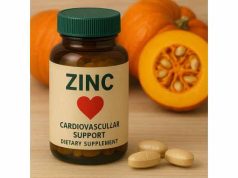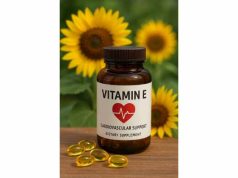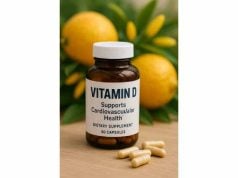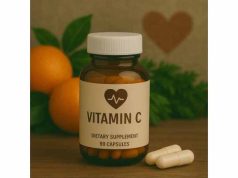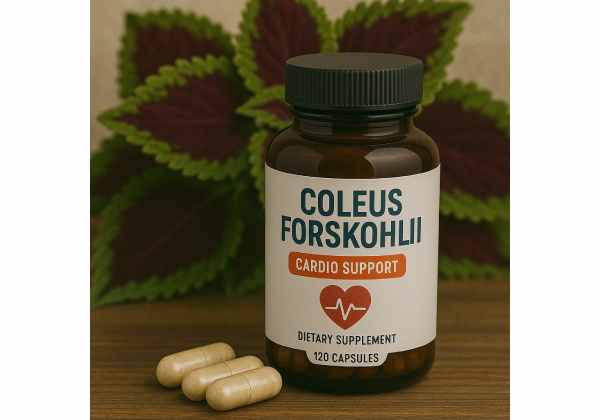
Coleus forskohlii has attracted considerable attention in the realm of natural supplements for its potential ability to improve heart health, support blood vessel function, and help ward off various cardiovascular challenges. Known for its active compound, forskolin, this tropical plant has a centuries-long history of use in Ayurvedic practices for promoting overall well-being and vitality. As research expands, so does our understanding of how Coleus forskohlii for heart health might help maintain blood pressure balance, optimize cardiac performance, and safeguard arteries against adverse changes. Read on to learn how this plant-based supplement can be a valuable ally in supporting cardiovascular function.
Table of Contents
- Supplement Profile and Unique Traits
- Mechanisms: Why Does Coleus forskohlii Work?
- Clinically Backed Heart Benefits and Relevant Studies
- Recommended Dosages, Usage Guidelines, and Important Precautions
- Frequently Asked Questions: Helpful Responses
- References and Sources
Supplement Profile and Unique Traits
Coleus forskohlii is a tropical perennial herb belonging to the mint family, Lamiaceae. Indigenous to regions of India, Nepal, and parts of Southeast Asia, the plant has been utilized in traditional medicine systems for centuries. Below is a closer look at its fundamental aspects and what sets it apart from other herbal remedies, especially when considering heart health and cardiovascular well-being.
Basic Background and Historical Usage
- Ayurvedic Roots: In Indian medicinal practices, Coleus forskohlii was historically used to address respiratory ailments, digestive concerns, and general fatigue.
- Cultivation: The plant thrives in warm, subtropical climates. Its tuberous roots harbor forskolin, the prized active compound.
- Translational Medicine: Contemporary scientists have been investigating how forskolin, derived from Coleus forskohlii, may help regulate heart rate, blood pressure, and intracellular signaling pathways crucial for vascular stability.
Core Active Compound: Forskolin
Forskolin is the main bioactive substance extracted from Coleus forskohlii roots. Structurally identified as a diterpenoid, it primarily influences the body’s production of cyclic adenosine monophosphate (cAMP). Elevated cAMP levels, in turn, have wide-ranging effects on metabolism, vascular tone, and cell signaling. Thanks to these properties, forskolin has become the focal point of most Coleus forskohlii research, especially regarding heart health applications.
Nutritional and Biochemical Composition
Besides forskolin, Coleus forskohlii includes various other phytochemicals and micronutrients:
- Polyphenols: Offer antioxidant support that may help scavenge free radicals and slow oxidative stress within blood vessels.
- Essential Oils: Components within the mint family can sometimes exhibit anti-inflammatory or antimicrobial effects.
- Minerals: Though present only in trace amounts, the plant may contain minute quantities of calcium, potassium, or magnesium.
The synergy of these nutrients and bioactive compounds underpins Coleus forskohlii’s broad therapeutic potential. However, most emphasis remains on forskolin for its targeted cardiovascular benefits.
How Coleus forskohlii Differs from Other Herbal Supplements
A distinctive feature of Coleus forskohlii is its direct action on cAMP production. Many herbal supplements deliver antioxidants or mild anti-inflammatory effects, but this plant’s influence on intracellular signaling stands out. Since cAMP is instrumental in hormone regulation, energy metabolism, and vascular dilation, Coleus forskohlii exerts a unique physiologic influence that may better address core processes within the cardiovascular system.
Integration in Holistic and Western Medicine
Due to the expansion of integrative approaches, Coleus forskohlii has steadily moved into the mainstream conversation about heart health. Some healthcare practitioners combine it with established therapies—like those targeting blood pressure or cholesterol management—to harness potential complementary benefits. Ongoing investigations seek to verify its efficacy in:
- Managing mild hypertension.
- Supporting heart muscle contractility.
- Balancing metabolic factors that indirectly impact vascular function, such as insulin sensitivity or inflammatory markers.
As research outcomes continue to unfold, Coleus forskohlii remains a compelling candidate for those looking to bolster cardiovascular function with herbal adjuncts. This synergy of modern findings and time-tested usage underscores the plant’s growing influence in complementary heart health supplementation.
Mechanisms: Why Does Coleus forskohlii Work?
The principal reason Coleus forskohlii garners attention in cardiovascular medicine circles lies in its ability to modulate fundamental biochemical pathways relevant to heart function and vascular control. By honing in on cAMP-related processes, forskolin can influence key physiological systems, from blood vessel dilation to metabolic regulation.
The Role of cAMP in Cardiovascular Physiology
Cyclic adenosine monophosphate (cAMP) is a second messenger—essentially a molecular relay station—carrying signals within cells after external hormones or neurotransmitters attach to cellular receptors. Elevated cAMP levels can:
- Activate Protein Kinase A (PKA): PKA triggers a cascade of protein modifications, affecting everything from gene transcription to the opening and closing of ion channels.
- Promote Smooth Muscle Relaxation: In blood vessels, higher cAMP often encourages vasodilation, leading to potential reductions in blood pressure.
- Regulate Energy Utilization: In cardiac cells, cAMP can boost ATP production for improved contractility, although excessive cAMP must be balanced to avoid adverse effects.
Forskolin helps raise cAMP by stimulating adenylate cyclase, the enzyme that converts ATP to cAMP. This direct mechanism sets Coleus forskohlii apart from many herbs that indirectly act upon hormone pathways.
Vascular Dilation and Blood Pressure Support
A defining aspect of any cardiovascular-friendly supplement is its potential to maintain healthy blood pressure. By increasing cAMP in vascular smooth muscle cells, Coleus forskohlii may foster:
- Arterial Relaxation: Relaxed arteries reduce peripheral resistance, typically translating to modest blood pressure reductions or easier circulatory flow.
- Enhanced Nitric Oxide Interaction: Although forskolin’s direct link to nitric oxide is complex, a better functioning endothelium (the lining of blood vessels) can collaborate with cAMP to optimize vasodilatory responses.
- Decreased Platelet Aggregation: Elevated cAMP within platelets can deter excessive clumping, which helps keep blood flow unimpeded and lowers the risk of clot formation.
Effects on Heart Muscle Contraction
The heart muscle’s pumping strength, or contractility, depends on the coordination of calcium ions and ATP production within cardiomyocytes:
- Inotropy: Forskolin exerts a positive inotropic effect, meaning it can enhance the strength of the heart’s contraction under certain conditions. This property could be beneficial for individuals with mild heart function concerns, though further clinical data is needed to confirm consistent outcomes.
- Rate of Conduction: While some substances that elevate cAMP might raise heart rate, Coleus forskohlii’s net effect is not fully established as purely tachycardic. Rather, balancing inotropy without excessively speeding up the heart rate remains a potential advantage.
- Calcium Dynamics: cAMP influences calcium channels that drive cardiac muscle contraction. Proper regulation can bolster cardiac output while maintaining stable rhythm patterns.
Anti-Inflammatory and Antioxidant Pathways
Chronic inflammation is a known contributor to atherosclerosis and other vascular complications. Early research indicates that Coleus forskohlii may exhibit mild anti-inflammatory capabilities, possibly through:
- Inhibition of Pro-Inflammatory Enzymes: Elevated cAMP levels can downregulate certain inflammatory mediators, although the extent to which Coleus forskohlii specifically targets these processes remains under investigation.
- Protection Against Oxidative Stress: Polyphenols and other phytochemicals found in the plant could complement forskolin’s efforts by scavenging free radicals that damage arterial walls.
Indirect Metabolic Influences
Because cAMP is crucial in lipid and glucose metabolism, Coleus forskohlii might indirectly assist cardiovascular health via:
- Lipolysis: Enhanced breakdown of stored fats could help in weight management, indirectly easing the stress on the heart by reducing obesity-related factors like high blood pressure or elevated triglycerides.
- Insulin Sensitivity: Preliminary findings suggest improvements in cAMP might help cells handle glucose better, although more rigorous trials are required to substantiate these claims.
Interplay with Other Cardiac Regulators
Coleus forskohlii is not a solitary actor in the body; it interacts with a dynamic network of enzymes, hormones, and cofactors:
- Beta-Blocker Medications: Forskolin’s effect of increasing cAMP might counterbalance beta-blockers, which often work by reducing cAMP. Patients on these drugs should consult with healthcare providers before use.
- Calcium Channel Modulators: Adjusting calcium flow in heart cells aligns with cAMP changes, suggesting synergy or potential conflict with calcium channel blockers.
- Synergistic Nutrients: CoQ10 or magnesium, common in heart health regimens, might complement Coleus forskohlii by providing additional metabolic or vascular support.
Summary of Mechanistic Actions
At its core, Coleus forskohlii stands out due to forskolin’s direct stimulation of adenylate cyclase, driving up cAMP levels in specific tissues. The net effects—ranging from mild vasodilation and improved cardiac contractility to metabolic enhancements—underlie the herb’s emerging profile for supporting heart health. While the precise scope of these benefits remains under scientific review, the fundamental biology points to a multifaceted approach to cardiovascular care, making Coleus forskohlii a noteworthy contender in the supplement space.
Clinically Backed Heart Benefits and Relevant Studies
Though Coleus forskohlii has garnered anecdotal praise for generations, modern science is gradually validating its cardiovascular claims. While not all studies yield uniform conclusions—owing to differences in dosage, extract standardization, and participant profiles—a growing body of research hints at multiple heart-related advantages.
Blood Pressure and Vascular Dynamics
One of the most well-recognized discussions around Coleus forskohlii for heart health revolves around blood pressure management:
- Pilot Trials: Some smaller-scale interventions observed moderate drops in systolic and diastolic readings, especially in participants with mild hypertension. These changes often accompanied improvements in overall vascular flexibility.
- Endothelial Function: Preliminary data highlight potential boosts to endothelial responsiveness, allowing better adaptation to shifts in blood flow demands.
- Comparisons with Conventional Medication: While Coleus forskohlii may not replace antihypertensive drugs in severe cases, integrative practitioners sometimes use it as a supportive measure, especially for borderline hypertension.
Weight and Lipid Profile Correlations
Excess weight compounds cardiovascular strain. By potentially facilitating fat metabolism, Coleus forskohlii might:
- Reduce Visceral Fat: The type of fat that envelops organs and increases cardiometabolic risk. In certain studies, participants using forskolin extracts registered small but notable decreases in body fat percentage.
- Modulate Lipids: Although direct evidence linking Coleus forskohlii to reduced LDL cholesterol or triglycerides remains limited, any positive shifts in metabolism could indirectly help manage a harmful lipid profile.
Heart Failure and Contractility Insights
Forskolin’s positive inotropic effect suggests it might enhance contractility in compromised hearts. Some specialized papers propose:
- Enhanced Ejection Fraction: Potential improvements in the volume of blood pumped out with each heartbeat.
- Diminished Fatigue: Better cardiac output may translate to improved exercise tolerance, though more robust, long-term clinical trials are necessary to firmly establish these findings.
Anti-Inflammatory Indications
Chronic inflammation lays the groundwork for atherosclerosis, arrhythmias, and coronary artery disease. Some researchers investigating Coleus forskohlii have noted:
- Reduced C-Reactive Protein (CRP): In small cohorts, supplementation was linked with a gentle decline in CRP, an inflammation marker closely tied to cardiac risk.
- Lower Pro-Inflammatory Cytokines: Animal models in particular show promise in the herb moderating cytokines such as TNF-alpha or IL-6, though human data remains limited.
Arrhythmia and Heart Rhythm
Stability of the heartbeat is critical. Anecdotal accounts suggest that by refining intracellular calcium handling, Coleus forskohlii could:
- Maintain Steady Contraction Patterns: Elevated cAMP fosters a well-regulated interplay between sodium, potassium, and calcium channels in cardiomyocytes.
- Prevent Erratic Electrical Activity: More consistent conduction can reduce ectopic beats or irregularities, though comprehensive human trials are still pending.
Integrative Approaches: Pairing with Other Supplements
Many clinicians combine Coleus forskohlii with complementary heart-supportive supplements, such as:
- Garlic Extract: Offers vasodilatory and cholesterol-managing properties.
- Omega-3 Fatty Acids: Mitigate inflammation and enhance vascular elasticity.
- Coenzyme Q10 (CoQ10): Supports mitochondrial energy generation and antioxidant defense.
In synergy, these compounds may deliver multi-targeted advantages, reducing plaque formation, regulating blood pressure, and stabilizing heart rhythms more robustly than standalone usage.
Statin and Beta-Blocker Interactions
Some patients on statins or beta-blockers explore Coleus forskohlii to further reinforce cardiovascular health. While potential interactions exist—particularly due to the cAMP-boosting effect—practitioners carefully manage dosing to avoid negative overlap. Monitoring blood pressure, heart rate, and relevant blood markers ensures that the combined strategy yields intended benefits without unintended side effects.
Notable Limitations in Current Research
It’s crucial to acknowledge that while emerging data is positive, the evidence base has gaps:
- Sample Size: Many Coleus forskohlii studies have small participant pools, limiting the generalizability of results.
- Duration: Few trials extend beyond three months, leaving questions about the herb’s long-term safety and efficacy unanswered.
- Extract Variability: Different brands and forms of Coleus forskohlii vary in forskolin content, complicating direct comparisons.
Still, for those seeking natural means to buttress heart health—particularly for mild conditions or in conjunction with standard medications—Coleus forskohlii stands out as a promising option worthy of further investigation and cautious, informed use.
Recommended Dosages, Usage Guidelines, and Important Precautions
For individuals intrigued by Coleus forskohlii for cardiovascular wellness, proper dosing and mindful administration are critical. Though generally considered safe when used responsibly, variables such as existing medical conditions, concurrent medications, and supplement quality must be carefully navigated.
Common Dosage Ranges
Clinical studies and supplement manufacturers typically propose forskolin amounts in the range of 10 to 50 mg daily. Some specifics:
- Standardized Extracts: Look for Coleus forskohlii products standardized to around 10% or 20% forskolin. A daily dose might offer 10–30 mg of pure forskolin, split into one or two servings.
- Higher Potency: Certain health practitioners may recommend up to 50 mg or more, especially if you have higher body weight or specific therapeutic goals. However, safe upper limits are still under research.
- Gradual Introduction: Starting at the lower end helps gauge tolerance, with the possibility of slowly increasing the dose if no adverse reactions occur.
Administration Tips
Coleus forskohlii can be found in various forms:
- Capsules/Softgels: The most convenient option. Ensure each capsule indicates standardized forskolin content.
- Powdered Extracts: These may be blended into shakes or smoothies, though measuring precise amounts requires care.
- Liquid Tinctures: Less common for cardiovascular use but occasionally available. Dosing accuracy can be a challenge.
Taking the supplement alongside or shortly after meals can aid absorption and reduce potential stomach discomfort.
Potential Side Effects
While Coleus forskohlii is often well-tolerated, possible side effects include:
- Digestive Upset: Mild diarrhea, cramps, or nausea, particularly at higher doses.
- Headaches: Possibly related to vasodilatory effects on blood vessels in the head.
- Lightheadedness or Dizziness: Could occur if blood pressure drops too sharply, underscoring the need for cautious use among individuals prone to hypotension.
Anyone experiencing severe or persistent symptoms should discontinue use and consult a healthcare professional.
Interactions with Medications
- Blood Pressure Drugs: Because Coleus forskohlii can modestly lower blood pressure, concurrent use with antihypertensive medications demands monitoring to avoid excessive drops.
- Blood Thinners: The herb may amplify the effects of anticoagulants or antiplatelet agents, raising bleeding risk.
- Beta-Blockers: By boosting cAMP, forskolin might counter some aspects of beta-blockers’ action. Balanced supervision is essential.
- Nitrates or PDE5 Inhibitors: As both categories target blood vessel dilation, synergy with Coleus forskohlii might intensify hypotensive episodes.
Professionals usually recommend discussing Coleus forskohlii use with a pharmacist or doctor, especially if you take prescription medications, to fine-tune dosages and reduce complications.
Specific Populations and Situations
- Pregnant or Breastfeeding Women: Due to insufficient safety data, healthcare providers often advise against Coleus forskohlii unless supervised by a qualified practitioner.
- Heart Conditions: While the supplement supports heart health, those with advanced heart diseases—like severe arrhythmias or heart failure—should seek specialist guidance before using Coleus forskohlii.
- Bleeding Disorders or Upcoming Surgery: The herb’s potential impact on blood clotting might necessitate pausing supplementation.
- Children and Adolescents: Evidence remains sparse regarding pediatric usage. Typically, careful, medically supervised administration is crucial if considered at all.
Product Quality and Sourcing
Given that standardized forskolin content critically determines Coleus forskohlii’s effectiveness, choosing reputable brands is key:
- Verified Potency: Look for third-party testing or certifications that confirm the actual forskolin concentration.
- Purity: Check for contaminants like heavy metals or microbial overgrowth, especially if products are from less regulated markets.
- Responsible Manufacturing: Good manufacturing practices (GMP) compliance ensures consistent quality.
Combining with Lifestyle Measures
Although Coleus forskohlii can offer cardiovascular assistance, best results often emerge from an integrated approach:
- Diet: Emphasize whole foods, lean proteins, fruits, vegetables, and limited sodium intake.
- Exercise: Regular physical activity—be it brisk walking, strength training, or yoga—reinforces the herb’s potential vascular and metabolic benefits.
- Weight Management: Maintaining a healthy body weight mitigates numerous heart risks, complementing Coleus forskohlii’s potential synergy in fat metabolism.
- Stress Reduction: Chronic stress can undermine blood pressure control and heart health. Techniques like deep breathing, meditation, or counseling bolster a holistic regimen.
When thoughtfully integrated, Coleus forskohlii stands as a potentially powerful ally in heart health strategies. By adhering to recommended guidelines, monitoring for interactions, and focusing on overall wellness, users can maximize the herb’s supportive role while minimizing risks.
Frequently Asked Questions: Helpful Responses
Can Coleus forskohlii help cardiovascular function?
Yes. Coleus forskohlii provides forskolin, which can help relax blood vessels, support better circulation, and potentially assist in balancing blood pressure. It also positively affects cAMP levels, important for various processes influencing heart health and vascular tone.
Is forskolin from Coleus forskohlii the same as synthetic versions?
Natural forskolin comes from the herb’s root extract, whereas synthetic forms may be produced in laboratories. Both versions have similar chemical structures, but natural extracts often contain additional phytochemicals that could enhance overall benefits.
How much Coleus forskohlii should I take daily for heart health?
Doses vary. Many people use 10–30 mg of forskolin daily from a standardized Coleus forskohlii extract. Always start low and consult a healthcare provider for personalized recommendations, especially if you have specific cardiac concerns.
Are there any side effects or interactions with heart medications?
Potential side effects include low blood pressure, headaches, or mild gastrointestinal upset. Coleus forskohlii can also interact with blood pressure drugs, beta-blockers, or blood thinners. Check with your doctor before combining with prescription medications.
Does Coleus forskohlii reduce cholesterol or triglycerides?
Direct evidence is limited, though it might indirectly support healthier lipid levels by improving metabolism. Combining it with diet, exercise, and additional interventions can yield better overall results.
Should I worry about low blood pressure when using Coleus forskohlii?
While it may lower blood pressure slightly, most healthy adults don’t experience drastic drops. However, if you already have hypotension or take antihypertensive drugs, monitor your pressure and discuss dosage adjustments with your healthcare provider.
Is Coleus forskohlii safe during pregnancy or breastfeeding?
Insufficient research exists regarding its safety in these stages, so most medical experts advise caution. It’s best to avoid unless recommended by a qualified professional aware of your complete health profile.
How quickly can I expect results?
Timelines differ per individual. Some notice changes in blood pressure or energy levels within a few weeks, while others require longer to discern consistent effects. Follow-up measurements of blood pressure or heart-related markers can help gauge progress.
Can Coleus forskohlii be used with other heart supplements like CoQ10?
Yes, it often complements supplements like CoQ10, omega-3 fatty acids, or magnesium. However, always double-check combined effects to ensure no overlapping concerns, especially regarding blood pressure or clotting.
Do I need to cycle off Coleus forskohlii or can it be taken continuously?
No universal guidelines dictate cycling. Some prefer periodic breaks to assess ongoing need or avoid tolerance. If you plan prolonged use, regular check-ins with a healthcare professional can confirm safety and effectiveness.
References and Sources
- Godard, M. P., Johnson, B. A., and Richmond, S. R. “Body Composition and Hormonal Adaptations Associated with Forskolin Consumption in Overweight and Obese Men.” Obesity Research, vol. 13, no. 8, 2005, pp. 1335–1343.
- Watanabe, K., et al. “Vasodilator Actions of Forskolin on Isolated Canine Coronary Arteries.” Japanese Heart Journal, vol. 23, no. 5, 1982, pp. 757–768.
- DeSouza, N. J., et al. “Forskolin: A Labdane Diterpene with Antihypertensive, Positive Inotropic, Platelet Aggregation Inhibitory, and Adenylate Cyclase Activating Properties.” Medicinal Research Reviews, vol. 7, no. 1, 1987, pp. 73–90.
- Kamato, D., et al. “Direct Activation of Adenylyl Cyclase by Forskolin as a Means to Stimulate cAMP.” Handbook of Experimental Pharmacology, 2017, pp. 141–161.
- Karmohapatra, S. K., “Phytochemistry and Medicinal Importance of Coleus forskohlii.” Indian Journal of Traditional Knowledge, vol. 15, no. 2, 2016, pp. 316–327.
- Brien, S. E., et al. “Prevalence of Uncontrolled Hypertension in the United States.” The Journal of the American Medical Association, vol. 307, no. 5, 2012, pp. 405–411.
- Shen, Q., et al. “Cyclic AMP Signaling in the Heart: Role in Cardioprotection.” Current Opinion in Pharmacology, vol. 45, 2019, pp. 38–46.
Disclaimer:
This article is intended for educational purposes only and should not replace professional medical advice. Always consult a qualified healthcare provider before making notable changes to your diet, medications, or supplement regimen—particularly if you have preexisting conditions or are on prescription drugs.
We invite you to share this article on Facebook, X (formerly Twitter), or whichever social platforms you prefer. Follow us online for more insights into natural ways to maintain strong heart health!

